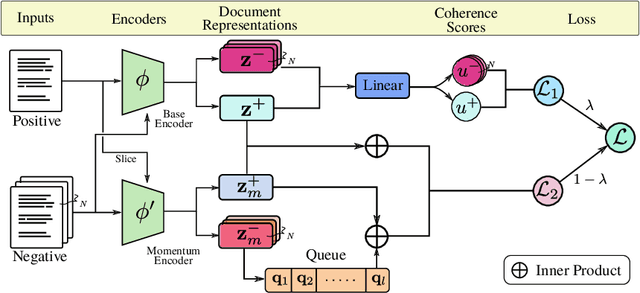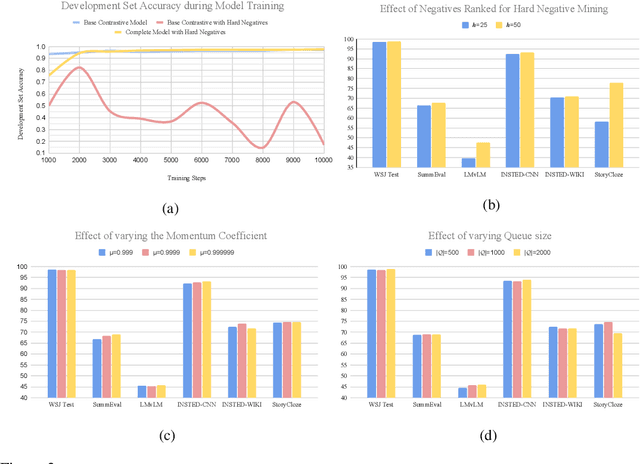Rethinking Self-Supervision Objectives for Generalizable Coherence Modeling
Paper and Code
Oct 14, 2021



Although large-scale pre-trained neural models have shown impressive performances in a variety of tasks, their ability to generate coherent text that appropriately models discourse phenomena is harder to evaluate and less understood. Given the claims of improved text generation quality across various systems, we consider the coherence evaluation of machine generated text to be one of the principal applications of coherence models that needs to be investigated. We explore training data and self-supervision objectives that result in a model that generalizes well across tasks and can be used off-the-shelf to perform such evaluations. Prior work in neural coherence modeling has primarily focused on devising new architectures, and trained the model to distinguish coherent and incoherent text through pairwise self-supervision on the permuted documents task. We instead use a basic model architecture and show significant improvements over state of the art within the same training regime. We then design a harder self-supervision objective by increasing the ratio of negative samples within a contrastive learning setup, and enhance the model further through automatic hard negative mining coupled with a large global negative queue encoded by a momentum encoder. We show empirically that increasing the density of negative samples improves the basic model, and using a global negative queue further improves and stabilizes the model while training with hard negative samples. We evaluate the coherence model on task-independent test sets that resemble real-world use cases and show significant improvements in coherence evaluations of downstream applications.
 Add to Chrome
Add to Chrome Add to Firefox
Add to Firefox Add to Edge
Add to Edge